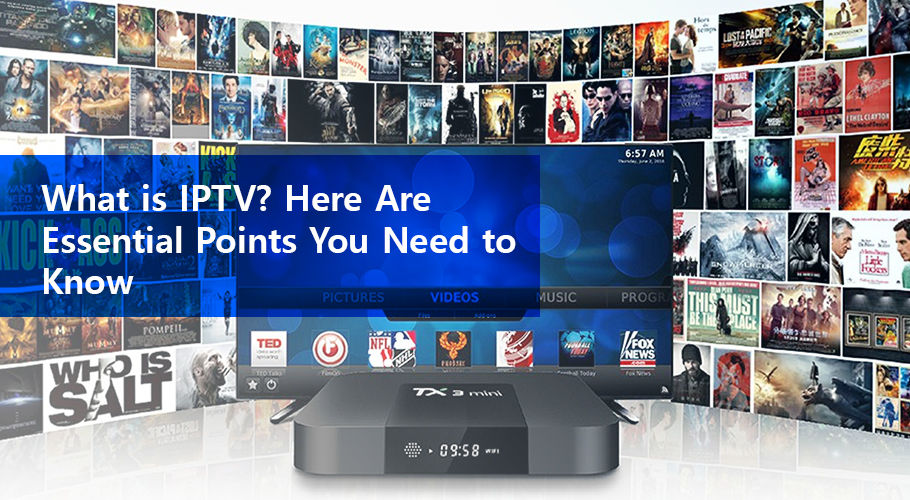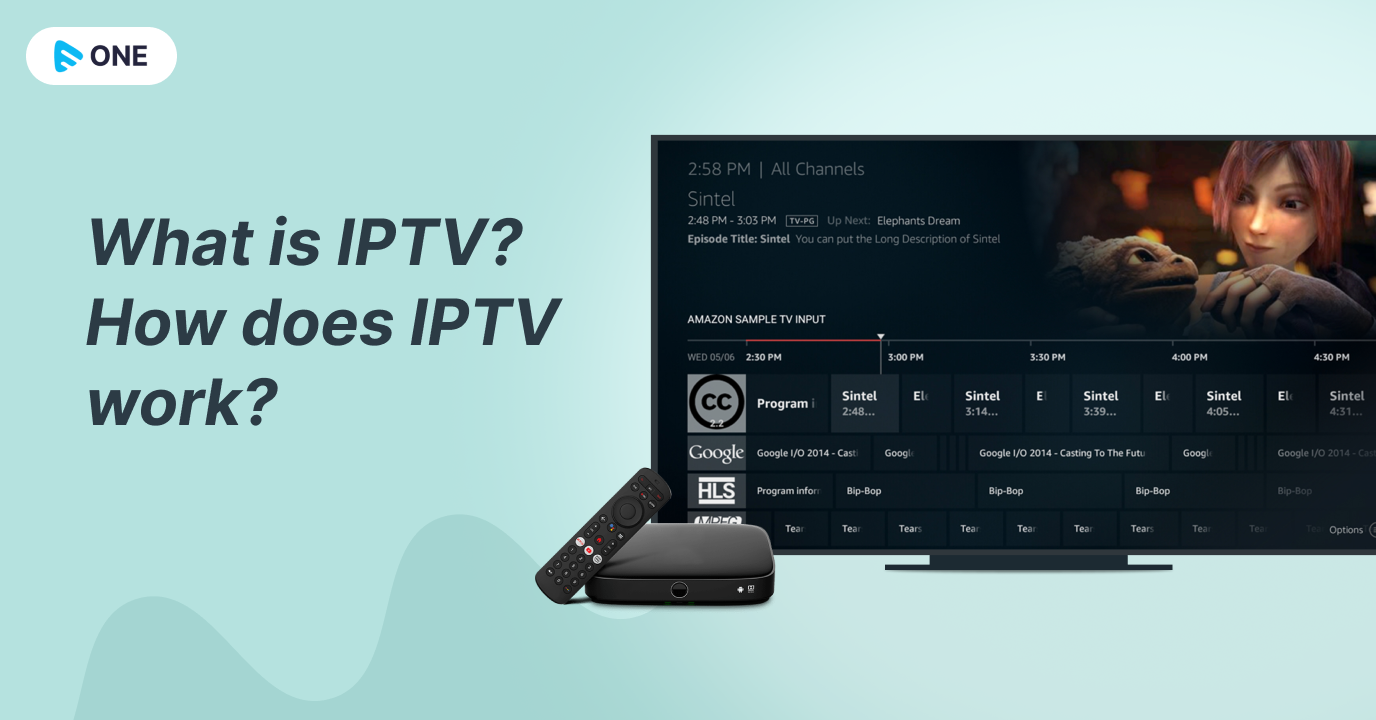IPTV Solutions-- Bringing Television Enjoyment to the Digital Age
IPTV Solutions-- Bringing Television Enjoyment to the Digital Age
Blog Article
Exactly How IPTV Functions: Your Total Guide to Streaming Television Online
IPTV, or Internet Procedure Television, stands for a considerable shift in exactly how we consume television content, moving away from standard broadcasting techniques to a more flexible, internet-based method. By using a client-server design, IPTV makes it possible for customers to access a vast range of programs with electronic packets transferred over broadband connections.
What Is IPTV?
In the realm of electronic media, IPTV, or Internet Procedure Tv, represents a transformative approach to delivering tv material. Unlike conventional broadcasting techniques, which depend on terrestrial, satellite, or cord systems, IPTV makes use of internet protocol to stream content straight to tools such as televisions, tablets, and mobile phones. This technology makes it possible for customers to access a wide range of programs with high-speed web connections, offering adaptability and comfort.
IPTV can be categorized right into 3 main solution models: real-time tv, video as needed (VOD), and time-shifted television. Online television permits customers to enjoy broadcasts in real-time, while VOD gives access to a collection of material that can be checked out at the customer's convenience. Iptv. Time-shifted tv enables visitors to view programs at their recommended time, even if they initially aired real-time
Furthermore, IPTV frequently incorporates interactive features, such as electronic program overviews and video recording abilities, enhancing the checking out experience. As consumers increasingly require personalized material and on-demand solutions, IPTV stands apart as a compelling remedy, reshaping the television landscape and offering extraordinary options for customers worldwide.
How IPTV Functions
The seamless combination of modern technology and user experience defines exactly how IPTV runs. Web Method Television (IPTV) delivers television shows and various other multimedia material using net methods, as opposed to typical terrestrial, satellite, or cable formats. This procedure involves encoding video clip web content right into electronic packets that are sent over a broadband net link.
IPTV normally utilizes a client-server model where material is saved on a web server and sent out to the customer's device-- such as a smart TV, computer, or mobile phone-- upon request. The material shipment is promoted via a set-top box or an application that decodes the incoming data and presents it on the screen. Notably, IPTV operates a online or on-demand basis, enabling individuals to access a broad array of channels and shows.
A crucial aspect of IPTV is its reliance on a durable broadband link, which makes certain smooth streaming and high-quality video clip playback. Additionally, IPTV systems often incorporate innovative attributes such as digital program guides (EPGs), time-shifting, and video-on-demand (VOD), boosting the watching experience. In general, IPTV represents a significant advancement in just how customers consume tv material, leveraging the power of the internet for enhanced accessibility and adaptability.
Advantages of IPTV
While standard television methods frequently restrict customer choices and availability, IPTV offers various benefits that improve the general watching experience. One of the primary advantages is the extensive selection of material offered. Audiences can access a vast collection of channels, on-demand programs, and movies, tailored to individual choices.
In addition, IPTV supports numerous devices, enabling individuals to stream content on smartphones, tablet computers, wise TVs, and computers. This adaptability guarantees visit their website that visitors can enjoy their favored programs anytime and anywhere, as long as they have a web connection. Furthermore, IPTV often features interactive components, such as record, pause, and rewind functionalities, giving users with higher control over their watching practices.
Cost-effectiveness is an additional notable advantage. Many IPTV services use affordable rates contrasted to traditional cable registrations, frequently without lasting contracts or hidden costs. This price makes it simpler for consumers to check out different channels and web content without considerable monetary commitments.
Finally, IPTV commonly flaunts superior picture high quality, including high-definition and 4K options, enhancing the overall watching experience. Jointly, these advantages make IPTV an engaging option for contemporary customers looking for adaptability, selection, and top quality in their amusement alternatives.
Kinds Of IPTV Solutions
IPTV services can be categorized into several distinctive kinds, each providing to different visitor demands and choices. The main classifications include real-time tv, on-demand web content, and time-shifted IPTV.
Online tv IPTV uses real-time streaming of broadcast channels, permitting customers to watch programs as they air. This service closely resembles traditional cable, offering access to a series of channels, including information, sports, and entertainment.
On-demand IPTV, on the other hand, enables customers to choose and watch web content at their ease. This consists of films, collection, and documentaries that can be streamed whenever the viewer selects, offering flexibility and customization.
Time-shifted IPTV integrates components of both online and on-demand services. It permits visitors to pause, rewind, or record live programs, providing the capability to regulate their viewing experience. This service is especially useful for those with active schedules, as it fits visitors that might miss out on real-time broadcasts.

Setting Up IPTV
Establishing IPTV entails a number of vital actions to make certain a smooth watching experience. Initially, you need a secure internet link, useful content ideally a broadband solution with a minimal speed of 10 Mbps for conventional meaning and at the very least 25 Mbps for hd streaming. This makes sure very little buffering and a smooth playback.
Next, choose an IPTV solution supplier. Research various alternatives, contrasting their channel offerings, pricing, and user evaluations. Once you have actually chosen a supplier, you generally get login qualifications and a link to access the IPTV solution.
To begin streaming, you'll require a compatible device - Iptv. Many IPTV solutions can be accessed through Smart Televisions, streaming boxes like Roku or Amazon Fire TV, computer systems, or mobile phones. Download the matching app or software for your selected system
After setup, log in using your qualifications and set up any type of necessary setups, such as adult controls or channel choices. Link your gadget to your tv through HDMI, and you're prepared to delight in a wide variety of networks and on-demand content. Frequently look for software program updates to enhance performance and protection, guaranteeing an optimum IPTV experience.
Conclusion

IPTV, or Internet Procedure Tv, stands for a substantial shift in exactly how we eat tv content, moving away from conventional broadcasting techniques to a much more adaptable, internet-based approach.In the realm of digital media, IPTV, or Web Procedure Tv, stands for a transformative strategy to providing tv web content.IPTV can be classified right into 3 key solution versions: live television, video on demand (VOD), and time-shifted television. Net Protocol Tv (IPTV) supplies television programs and other multimedia material by means of web procedures, rather than conventional terrestrial, satellite, next or cord styles. Generally, IPTV stands for a considerable development in exactly how visitors consume tv web content, leveraging the power of the net for boosted accessibility and adaptability.
Report this page